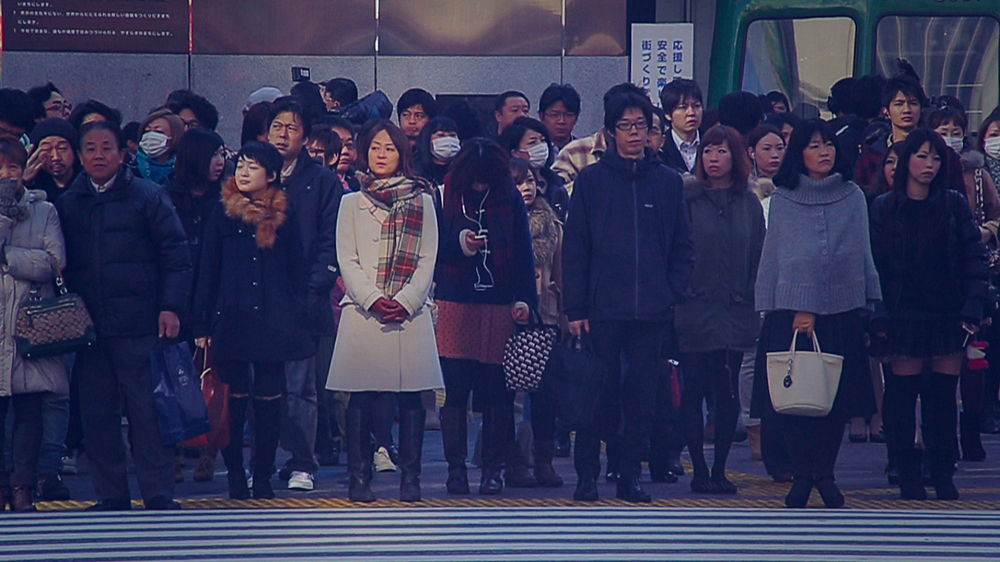Can central banks create booms and busts by manipulating the money supply? Do they do this in order to create a public consensus for economic, political and social change?
Professor Richard Werner, a monetary and development economist at the University of Southampton, says they can and they are. This is what the Bank of Japan did in the 1980s and '90s, and it's what the European Central Bank is doing at this very moment.
Werner spent much of the '90s and early 2000s in Japan, where he was a visiting researcher at the Bank of Japan and the Ministry of Finance, in addition to lecturing at Sophia University in Tokyo. In 2001, he published Princes of the Yen: Japan’s Central Bankers and the Transformation of the Economy, which quite unexpectedly jumped to the number 1 bestseller spot, outselling even Harry Potter. The book caused a significant stir as whistleblowers came forward and corroborated the evidence.
The documentary “Princes of the Yen” begins at the end of the Second World War. Japan was a country in ruins, many of its major cities having been literally razed to the ground. Yet in a mere two decades Japan recovered to become one of the world’s major economies. How was this possible?
At the heart of this transformation lay a little known mechanism called window guidance. It was in effect a mechanism carried forward from the wartime economic system, whereby the Japanese central bank would dictate the number and value of loans that banks issued, and which industrial sectors these loans should be allocated to.
During the war, this mechanism was used to support the Japanese war effort. After the war, it was used to rebuild Japan. The problem was that the system was too efficient, and Japanese firms began to gobble up western industries.
In the 1980s, window guidance was used to create one of the modern world's most spectacular bubbles. In this case, the Japanese central bank merely kept increasing the quotas for loans commercial banks had to issue. If a bank failed to reach the required lending target, it would be penalized. This money was predominantly pumped into real estate and the stock market. The outcome was predictable.
The value of a single one of Tokyo’s 23 districts exceeded the value of the whole of Canada. The value of the Garden surrounding the Imperial Palace in Central Tokyo became equal to that of California. Between 1985 and 1989, the stock market rose by 240%. At the time, economists and commentators claimed this was due to rising productivity and advanced financial technology.
The crash, which began in the early 1990s, was equally spectacular. The stock market dropped by 80% and house prices by up to 84%. Now the very same commentators who had previously argued that Japan was a beacon of efficiency claimed Japan’s economic system was inefficient, its industry needed to be privatized and its bureaucratic powers dismantled.
According to Professor Werner, the Bank of Japan could have engineered a recovery at any time. It could have bailed out the banks by buying their bad assets with its own central bank reserve currency. It could have avoided deflation by increasing the money supply through open market operations.
But instead the Japanese central bank decided to keep Japan in a state of deflation and let the Japanese government pump trillions of Yen into the banks and the economy in a fruitless attempt at lifting Japan out of recession. And soon Japan, which had had no government debt until 1965, suddenly registered the highest debt-to-GDP ratio in the world.
"Princes of the Yen" reveals that the Japanese boom and bust was deliberately orchestrated and prolonged by actors inside the Bank of Japan, with the aim of the clandestine transformation of Japan's economic, political and social system.
The film presents a profound challenge to today's dominant ideological belief system and the power levers that control it. Through it, viewers can begin to understand that what happened in Japan almost 25 years ago is again repeating itself today in Europe. Just try changing the economic ownership and power structure in the Eurozone area without attracting attention.
In the words of Japanese central banker Masaaki Shirakawa, “It is not easy to change the institutional framework and promote structural reform, since it necessarily involves the vested interests of all the related individual economic agents.”
Truth or fiction? Watch "Princes of the Yen" and decide for yourself.
3 WAYS TO SHOW YOUR SUPPORT
- Log in to post comments













